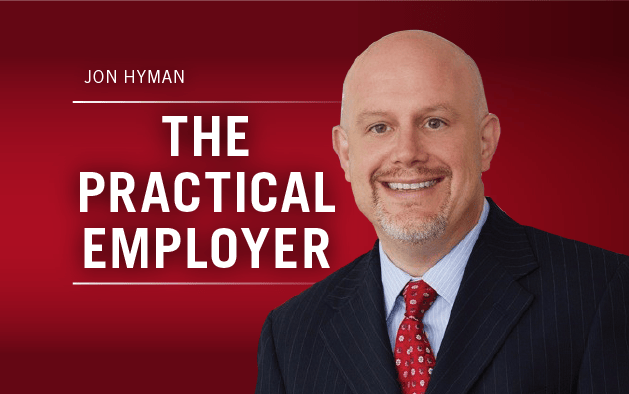In my experience, self-improvement is a day-to-day task. It’s a culmination of hard work that over time is accomplished by small but constant steps.
With the new year comes a good number of people whose New Year’s resolution is to get healthy. Given that people spend a good amount of time at the workplace, I’ve spoken with workplace wellness experts and others about well-being tips employees should keep in mind on a day-to-day basis in 2019. Some of them have also explained the employer’s role is in accomplishing these basic tasks.
Keep track of your achievements: Sometimes we can get caught up in the fast pace at work, getting bogged down by problems and difficulties and failing to appreciate our successes along the way, said Rick Hughes, head of service at the University of Aberdeen’s Counseling Service and a co-author of the book “The Wellbeing Workout,” along with Andrew Kinder and Cary L. Cooper. This can lead to anxiety, tension and stress.
“Toward the end of each work day, list three ‘achievements’ of the day in your diary,” Hughes suggested, adding that they don’t need to be major accomplishments. They can be as simple as “I had a good meeting with my colleague” or “I got appreciation from a customer.”
“At the end of the week you’ll have 15 achievements,” he said. “Sit back, applaud yourself and look forward to building on this further the following week.”
Work on your composure: This is a way to keep your sense of well-being strong on a daily basis, said Joyce Young, managing director for the High Health Network.
“Believe it or not, being composed is a skill,” Young said. “When you’re composed you have more control, more optimism, you make better decisions, and those decisions you make, because they’re better, help you stay in balance.”
She suggested three ways in which people can hone this skill.
- Connect with something personally meaningful. “If you stop every so often and say, what is meaningful to me? It resets the idea that I’m not just wandering here. There are things in my life that matter to me, and you basically are connecting with them. If we don’t connect and reflect, then these important points in our lives get away from us,” Young said. She added that if someone spends a couple minutes reflecting on what’s personally meaningful to them, the example might not be something positive. It could be something that’s causing negative thoughts or emotions. That’s still valuable, though, since it gives people a sense of centering and takes them away from the trivial things that can take up one’s day-to-day life.
- Nap. Studies have shown that even a three-minute nap can be refreshing, Joyce said. Personally, she enjoys taking 20-minute naps many days. Short naps can help someone feel more refreshed and composed.
- Connect with nature. This can help with something called “attention fatigue,” Joyce said. One’s sense of attention gets tired, much like a muscle, and experiencing nature can help restore that attention, for example by looking out the window at the office at the park across the street or keeping plants at the desk.
HR has a role in this, too. First, if decision makers in the HR community actually engage in the practices, they get the benefit of the practices, Young said. Also, if they engage in practices like this then it’s easier and more apparent to them what specific things they could do to help support their employees in similar endeavors.
Get fresh air: Expanding on Young’s “connect with nature” idea further, Tracy Hultgren, the creator of the blog Trail Tracing, advocates that people take a little time out of their day to get fresh air and take a walk. Hultgren spoke with Workforce earlier this year, and his ideas are worth revisiting.
For one, his notion to walk outside every day is simple and applicable to most geographies, from the middle of a city to a suburb close to local parks. Walking is a simple form of exercise that most people can do, Hultgren said. While many people have an “all-or-nothing” approach to working out — an attitude like, “If I’m not going to run a marathon, I’m not going to run at all” — allowing oneself a short, stress-free daily workout like walking lets them have a little time every day to take care of themselves in a low-key and not stressful way.
An employer’s role in this is simple. Basically, they just have to be open to allowing employees a short amount of time each day to leave their desk.
Scrap the resolutions: This one is coming from me. A while ago, a friend suggested that having a “goal” for the year was better than having the traditional resolution. So instead of telling yourself to go to yoga once a week, make a theme like “tranquility.”
It’s something more flexible, realistic and creative, because instead of doing one specific task every so often, you have a general vibe you’re striving for, and a lot of different activities fit in it. You might to yoga to calm down and feel more at peace, but you could also go on a long walk, spend a little time pampering yourself, or cook yourself a dinner that makes your apartment smell good.
This is also something realistic to fit in your everyday life, I believe.
Any other wellness tips you find valuable in your workplace? Comment below or reach out to me on Twitter @Andie_Burjek. I’ll add them to this list post-publication.





 People should take responsibility for their own health, but adopting the perfect heath behaviors in every aspect of our lives is impossible. Every person, regardless of their health status, drives health care costs.
People should take responsibility for their own health, but adopting the perfect heath behaviors in every aspect of our lives is impossible. Every person, regardless of their health status, drives health care costs.
 Take this instance. Years ago, people would took paper surveys about their mental well-being. Am I depressed? Am I stressed?
Take this instance. Years ago, people would took paper surveys about their mental well-being. Am I depressed? Am I stressed?
